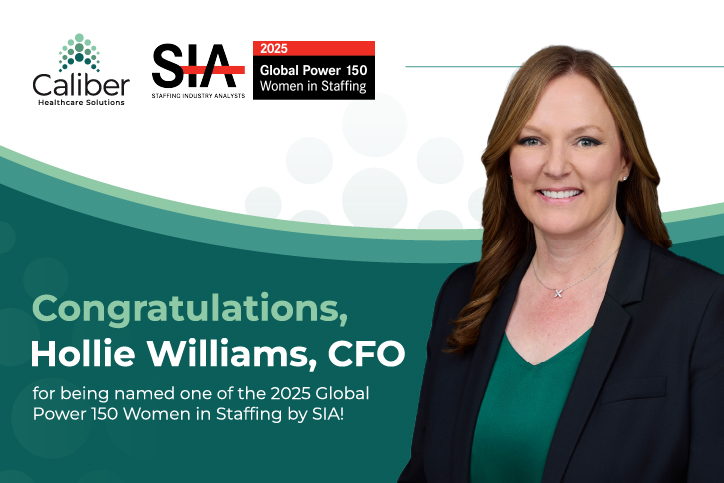
Oncology, while rewarding, can be fast-paced and even draining. While achieving work-life balance is critical for all physicians, it can be especially important (and difficult) to prioritize personal well-being and professional satisfaction as an Oncologist. Cancer specialists often face challenges beyond traditional patient care. Balancing the highly emotional nature of delivering lifechanging diagnoses, extended work hours, and the pressure of staying abreast of cutting-edge research can make it challenging to prioritize personal time. This guide offers actionable strategies to help Oncologists find equilibrium, fostering a well-rounded lifestyle that supports both career ambitions and personal wellness.
Oncology is a demanding field, and challenges often blend personally and professionally. The emotional toll of patient care, unpredictable schedules, and the need to juggle research with administrative responsibilities (let alone family obligations) can make balance feel impossible.
One of the most significant challenges in oncology is managing the emotional weight of patient suffering and loss. These experiences can lead to compassion fatigue—a state of physical, mental, and emotional exhaustion that affects clinical performance and personal well-being. To counter this, oncologists can adopt strategies like:
The irregular hours demanded by oncology can disrupt personal routines and exacerbate stress. Patients often require immediate attention, making schedules unpredictable. To navigate this:
Oncologists often wear multiple hats—clinician, researcher, and administrator. Each role demands attention and time, often leaving little room for personal endeavors. Strategies to manage this include:
Maintaining a healthy work-life balance starts with establishing clear boundaries and routines. These measures can ensure that professional obligations don’t overwhelm personal priorities.
Oncologists must define where work ends and personal life begins. Strategies include:
Time management is key to balancing competing demands. To improve efficiency:
It's essential to recharge. Consider:
Oncologists must proactively care for their physical and mental health to sustain their demanding roles.
Effectively managing stress is critical. Techniques include:
A healthy body supports a sharp mind. Oncologists should:
No one can—or should—navigate the challenges of oncology alone. Building connections within the medical community can provide invaluable support.
Joining or forming peer groups can foster camaraderie and shared learning. Consider:
Programs like mentorships or peer boards can provide guidance on managing stress, navigating career challenges, and achieving personal growth.
For Oncologists seeking flexibility, locum tenens positions can be a game-changer. These short-term roles allow you to step away from the rigors of a permanent position while maintaining your professional impact.
Imagine being able to adjust your workload to prioritize personal milestones or embark on professional opportunities that ignite your passion—without long-term commitments. Whether it’s taking time to research or enjoying more moments with your family, locum tenens can foster the balance you’re seeking.
Achieving work-life balance as an Oncologist isn’t about perfection—it’s about intentionality. By addressing the unique challenges of your field with practical strategies and prioritizing your well-being, you can create a fulfilling career without sacrificing personal happiness. Remember, taking care of yourself is one of the best ways to ensure you can continue to provide exceptional care to your patients. And at Caliber, we're happy to help you take the next step. Does exploring a more flexible schedule sound appealing? Let's chat more about locum tenens and how it can help you achieve work-life balance.
.png)
Posted on
February 3, 2026
Caliber Healthcare Solutions, a leading healthcare staffing agency, announced today that it has achieved a rare and significant milestone by winning ClearlyRated’s 2026 Best of Staffing® Client, Talent, and Employee Awards for Service Excellence. This marks the first time in company history that Caliber has earned the Employee Satisfaction Award, completing a first-ever, three-award sweep that reflects excellence across every stakeholder group the firm serves.

Posted on
October 9, 2025
Caliber is proud to announce that our Chief Financial Officer, Hollie Williams, has been named to the Staffing Industry Analysts (SIA) 2025 Global Power 150 Women in Staffing list. This prestigious recognition honors women who are shaping the future of the staffing industry through innovation, leadership, and measurable impact.

Posted on
August 14, 2025
The OB/GYN workforce is at a pivotal moment. Demand is growing, especially in underserved regions. Meanwhile, retirements, burnout, and legislative pressure continue to shrink the supply of practicing physicians.
.png)
Posted on
February 3, 2026
Caliber Healthcare Solutions, a leading healthcare staffing agency, announced today that it has achieved a rare and significant milestone by winning ClearlyRated’s 2026 Best of Staffing® Client, Talent, and Employee Awards for Service Excellence. This marks the first time in company history that Caliber has earned the Employee Satisfaction Award, completing a first-ever, three-award sweep that reflects excellence across every stakeholder group the firm serves.
.png)
Posted on
January 18, 2026
During National CRNA Week 2026 (January 18–24), we recognize and celebrate CRNAs for their critical role in modern healthcare and their lasting impact on patient outcomes nationwide.

Posted on
October 9, 2025
Caliber is proud to announce that our Chief Financial Officer, Hollie Williams, has been named to the Staffing Industry Analysts (SIA) 2025 Global Power 150 Women in Staffing list. This prestigious recognition honors women who are shaping the future of the staffing industry through innovation, leadership, and measurable impact.

Posted on
January 22, 2025
In today’s fast-paced healthcare environment, oncology professionals face increasing demands, including growing patient volumes, evolving treatment protocols, and administrative burdens.

Posted on
January 22, 2025
In the complex landscape of healthcare, Oncologists play a pivotal role in diagnosing and treating patients with cancer, making their profession both challenging and rewarding.

Posted on
January 22, 2025
The oncology job market is undergoing significant shifts, shaped by advances in cancer care, a growing patient population, and evolving healthcare delivery models.
.png)
Posted on
February 3, 2026
Caliber Healthcare Solutions, a leading healthcare staffing agency, announced today that it has achieved a rare and significant milestone by winning ClearlyRated’s 2026 Best of Staffing® Client, Talent, and Employee Awards for Service Excellence. This marks the first time in company history that Caliber has earned the Employee Satisfaction Award, completing a first-ever, three-award sweep that reflects excellence across every stakeholder group the firm serves.
.png)
Posted on
January 18, 2026
During National CRNA Week 2026 (January 18–24), we recognize and celebrate CRNAs for their critical role in modern healthcare and their lasting impact on patient outcomes nationwide.

Posted on
August 14, 2025
The OB/GYN workforce is at a pivotal moment. Demand is growing, especially in underserved regions. Meanwhile, retirements, burnout, and legislative pressure continue to shrink the supply of practicing physicians.